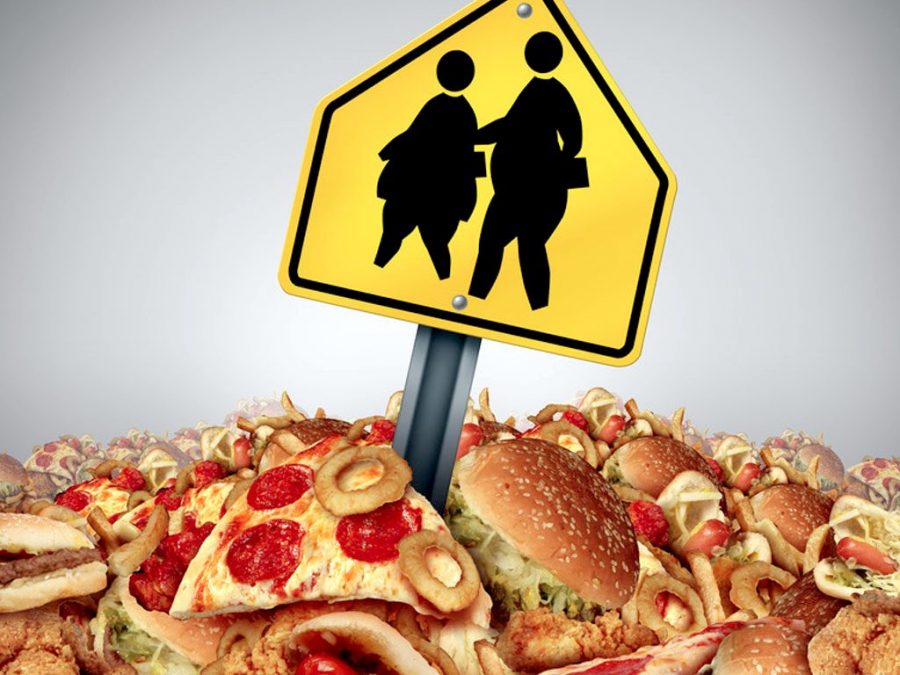Negative Impact of a College Student’s Diet
May 1, 2019
One of the most overlooked aspects when looking for a college is something we think of multiple times a day, food.
Among all the things students worry about like grades and resume boosters, many college students’ diets suffer on their minimal budgets. A bad diet doesn’t just affect the appearance of students.
It infringes on their academic success and overall productivity even more than what shows on the outside. With a variety of food options on college campuses, it comes down to the early decision to establish good or bad eating habits.
“Students who ate an adequate amount of fruit, vegetables, protein, fiber and other components of a healthy diet were significantly less likely to fail a literacy test,” Dr. Paul J. Veugelers of the University of Alberta in Edmonton and colleagues found.
It’s not that college students aren’t eating, they’re just eating all the wrong things. So do they know? The answer to that is yes. Most students know that behind the glass of vending machine sits snacks that hold almost no nutritional value, just convenience.
Many college students find themselves in debt due to the number of times per week they buy food off-campus. It’s easier to take a ride to Chic-fil-A or McDonald’s than think about cooking something yourself.
“I don’t love the options that are here, I repetitively eat the same meals all the time and get sick of it and then decide to go off-campus with my friends for food,” said University of Hartford student, Jenna Pupillo.
An unhealthy diet costs only 1.50 dollars more per day when compared to a healthy diet.
The healthiest diets cost about 1.50 dollars more per day than the least healthy diets, according to new research from Harvard School of Public Health (HSPH).
The epidemic does not only apply to food. It also applies to exercise, or lack thereof.
“95 percent of college students fail to eat the recommended amount of fruit and vegetables (five or more servings a day), and more than 60 percent report not getting enough physical activity (three or more days of vigorous exercise for at least 20 minutes or five or more days of moderate exercise for at least 30 minutes a week),” according to Northwestern Medicine and Northeastern Illinois University.
Establishing a new routine is undoubtedly one of the hardest things to do.
However, once that new routine is formed, you’ll feel immensely better. Even going on a walk for 20 minutes gives you a chance to breathe fresh air and boost your mood. Productivity and food choices go hand-and-hand.
You can’t expect to have the energy to get through a full day of classes and then study for an exam without proper nutrition. Therefore, all schools need more diverse, and healthy options.










